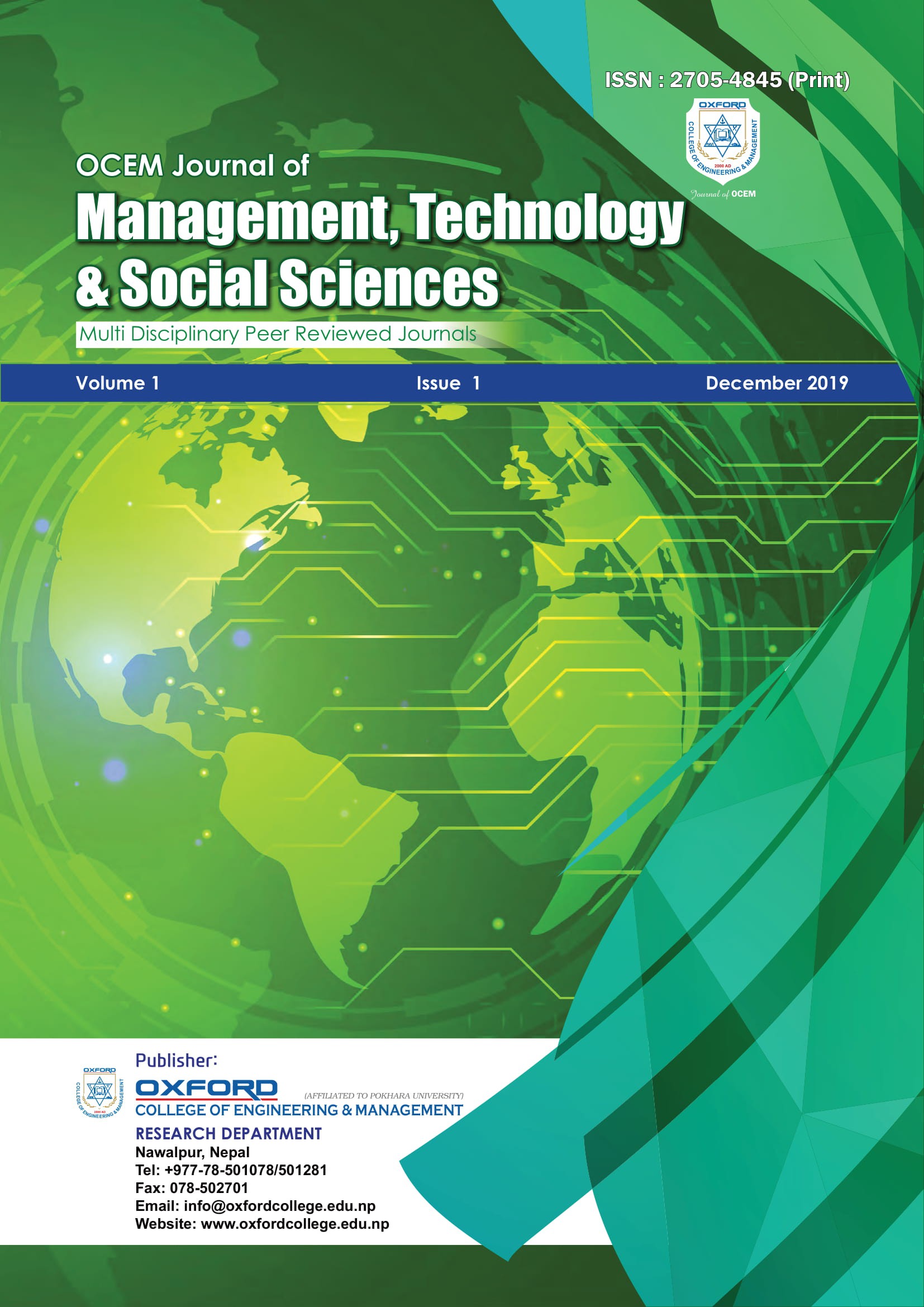
An Elaborative Study in the Market Potential of Home Automation and Security Products: A Case Study of Chitwan District in Urban Nepal
The objective of this study was to make people aware of automation products and its importance in the field of human convenience and security and also to focus on security, energy management and comfort. Quantitative research approach was used in this study. The research was conducted in two phases, i.e. collective interview with the guardians of the students by distributing the questionnaire to the students and providing them necessary guidance to fill the questionnaire and field visit to different institutes, banks, homes, hotels, industries in the year of 2018. The sampling technique was Random, Quota and convenience sampling. The results show that around 78.2 % families had Wi-Fi connection in their homes where 61.3 % was male and 37.1 % was female. Out of 124 members participating in research, 48.4 % of respondent was graduate student. The results show that approximately 96.8 % respondents show their interest in technology product. Among them 60.2 % respondents were between the age group of 30-50. The results also show that 90.3 % of family had more than three family members where 27.3 % respondents had monthly income above Nepalese Currency 90,000. About 51.7 % respondents perceived that security was the key feature of automation products whereas only 17.7 % responded that energy management and comfort were major issues for automation. The results importantly highlighted that approximately, 82.3% were familiar with home automation and 89.5 % respondents trusted in home automation products. The results also show that 84.7 % people showed interest in keeping home automation products. The empirical studies reveal that home automation is the most customized and reliable automation services. This study has tried to relate the advancement in the field of automation and the market potential of those products in Chitwan, Nepal. The implication of this research will be beneficial to city people who have the lack of deep knowledge of automation products and uses. The limitation of this study is the concern of proportion of the sample population of male and female participants.
Keywords: Home Automation, Security, Comfort, Smart Home
